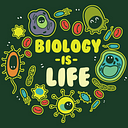Steven Rindner: A Bio Graduate? Here are Careers to Pursue
Steven Rindner, Bio Major: What are Suitable Jobs for Biologists?
Steven Rindner, bio student, knows that his degree can bring him to many places. This is why he is absorbing all the information he can while in college. In this blog post, he lists down suitable jobs for biologists.
- Food Scientist
Food is crucial for survival. A food scientist uses chemistry, engineering, and microbiology to study how food is processed. By examining the food’s composition, they can determine its nutrient concentration. Many food scientists explore ways to improve the flavor, safety, and health of processed meals. Additionally, they decide how to distribute, prepare, preserve, and package the food in the best way.
2. Quality Control Specialist
Steven Rindner, bio student, shares that there are many opportunities in the food and pharmaceutical industry. These industries need quality control specialists to ensure the products’ suitability, composition, and quality. You can apply your biology knowledge to improve consumer pharmaceutical and food products.
3. Veterinarian
Veterinary medicine is a good choice if you want to pursue another degree after completing your bio program. This career is suitable for those who love all kinds of animals. After studying bio, a veterinary medicine degree can be used to care for wildlife and domestic animals. In addition, having a clinic where people can bring their beloved pets to be treated can be a profitable and fulfilling career.
4. Agriculturist
Farming will always be essential. Agriculturists are experts in agriculture and livestock management. Their work covers soil management, breeding animals, crop protection, environmental sustainability, and harvesting.
There are countless careers in the agricultural sector. These days the current emphasis is on global warming, food shortages, and issues about safeguarding and improving food production methods.
5. Hydrologist
Hydrologists primarily work with water. The safety of potable water depends on the work they do every day. They determine whether there is pollution, drought, or erosion by surveying the characteristics of water bodies. They also take water samples and analyze the data they have gathered.
